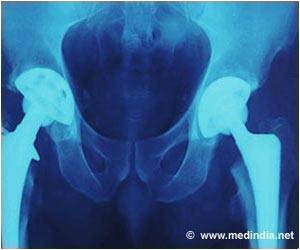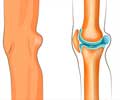
VIDEO ALERT: A video interview with Dr. Lewallen is available for journalists to download on the Mayo Clinic News Network.
The finding is important as physicians try to figure out why some patients do better than others after knee replacement, says David Lewallen, M.D., an orthopedic surgeon at Mayo Clinic in Rochester, Minn., who conducted the study with Jasvinder Singh, M.D., of the University of Alabama at Birmingham.
"It runs counter to what many might have expected to see," Dr. Lewallen says. "We need to work to understand it further."
One possible explanation: Many lower-income patients delay knee replacement as long as possible, so their knees tend to be in worse shape and their feeling of improvement after the procedure more dramatic, he says.
Drs. Lewallen and Singh used the Mayo Clinic Total Joint Registry to assess the association of income with knee function and moderate to severe pain as reported by patients at follow-up appointments after knee replacement. The registry has data on nearly all of the 100,000 joint replacements at Mayo Clinic since it performed the first FDA-approved total hip replacement roughly 43 years ago. The researchers adjusted for other factors previously found to be linked to patient-reported outcomes after knee replacement, such as age, gender, body mass index and underlying diagnosis.
Advertisement
"This is one small piece of a very large puzzle in understanding patient outcomes following a well-defined surgery that we know is very effective for most," Dr. Lewallen says.
Advertisement
Source-Eurekalert











